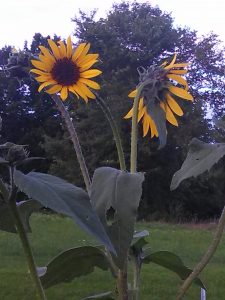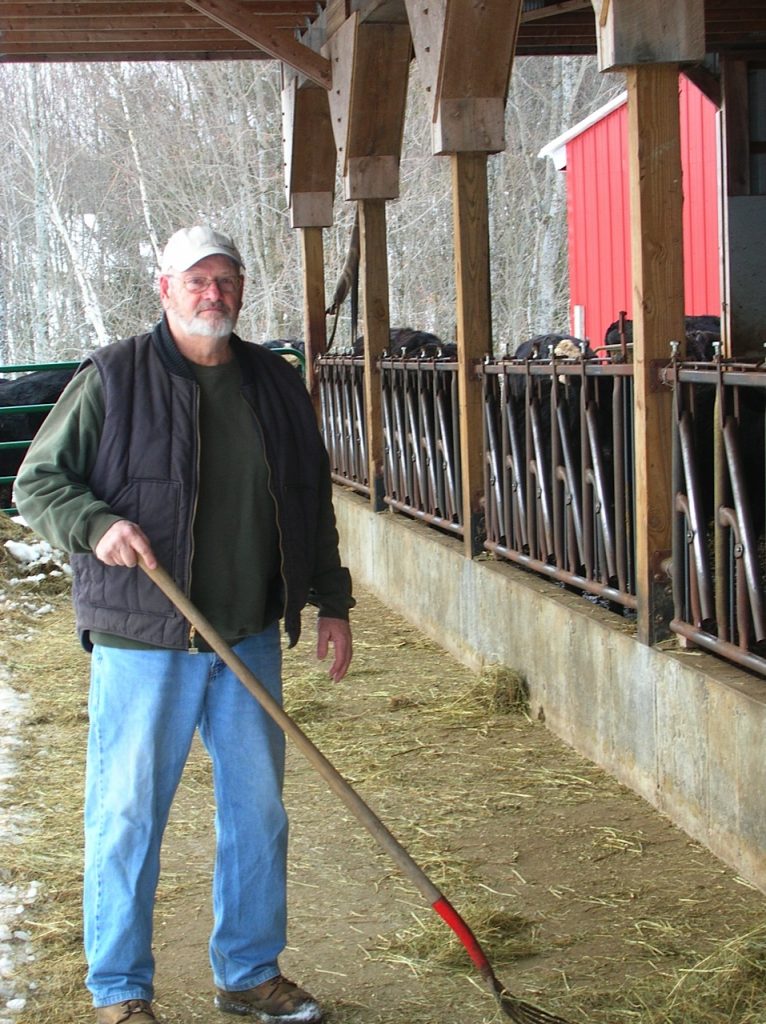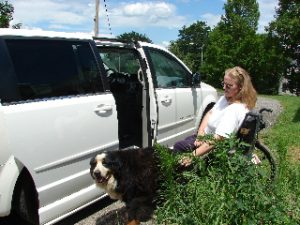AgrAbility Success Stories
Maine AgrAbility works with a diverse group of agricultural workers — farmers, fishermen, loggers — to identify barriers and find ways to continue to work successfully. Below are some success stories we’d like to share!
How a Program that Teaches Veterans to Farm Pivoted During the Pandemic
Program Helps Maine Veterans Learn to Farm (YouTube): For the past six months, Boots-2-Bushels has been teaching Maine veterans and their families how to farm. The program had to pivot in March when the coronavirus pandemic initially hit, but now small groups of veterans are back out in the greenhouse, working on their skills. For more, visit bangordailynews.com. Video by Natalie Williams.
What AgrAbility Means to Walter Morse and Aaron Greene-Morse
Walter Morse and Aaron Greene-Morse are both military veterans, and they operate Patriot Ridge Homestead in Jefferson, Maine. Watch the video to find out how they got started in agriculture and what AgrAbility means to them.
Farming with a Disability: Jesse
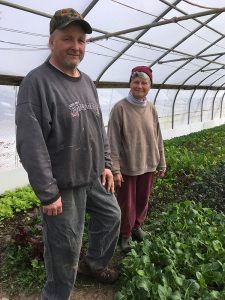 Maine AgrAbility Helps Put Bill Hayes Back on His Feet
Maine AgrAbility Helps Put Bill Hayes Back on His Feet
After surgery to amputate both legs below the knees in the summer of 2018, Bill Hayes is back at work on Dilly Dally Farm with his wife Carol. They maintain five year-round production greenhouses, each now bursting with a succession of greens. Bill and Carol have cut nearly 50 cords of wood this winter to fuel the outdoor furnace that heats the greenhouses. Come summer, Bill will prepare four-and-a-half acres to plant in mixed vegetables and he and Carol will raise broilers and turkeys for market.
As Bill got back to work on the farm, he faced some limitations. He contacted Maine AgrAbility to find out more about the program.
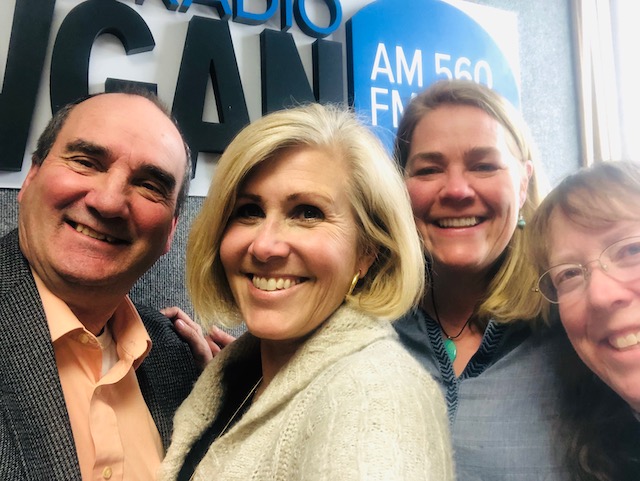
Positively Maine Podcasts Featuring Maine AgrAbility
Maine AgrAbility partnered with Tory Ryden of Positively Maine to record 3 podcasts featuring the program.
- Maine AgrAbility – What’s it all about
- Maine AgrAbility and Veterans in Farming
- Maine AgrABility and Youth in Agriculture
Making life easier
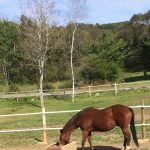
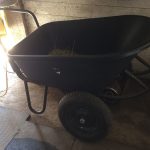 “I am using the power-assisted wheelbarrow to feed hay to my horses. The power assist allows me to easily move a load instead of having to go back and forth to the hay pile 7 or more times each feeding. Thanks for suggesting it.”
“I am using the power-assisted wheelbarrow to feed hay to my horses. The power assist allows me to easily move a load instead of having to go back and forth to the hay pile 7 or more times each feeding. Thanks for suggesting it.”
“It makes life much easier and tasks are doable with it.”
– AgrAbility Technical Assistance Contact, Liz in Newburgh, ME
Appreciation and Accessibility
“I totally appreciate Maine AgrAbility’s help to me and I share your information at every opportunity. I particularly appreciate your accessibility when I have a new issue. While I can’t always implement a suggestion right away, just knowing there is a direction for me is comforting.
– Caitlin Hunter, Appleton Creamery, Appleton, ME
Creating Connections
“AgrAbility got me connected to Voc Rehab and they paid for equipment to make round bales of hay.
Now I don’t have to handle bales by hand, it’s all done by equipment, and that has made all the difference for my back.”
– Stan Haynes, Clay Hill Farm, Peru, ME
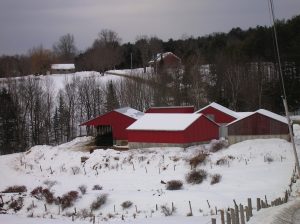
Continuing to Recover (Part II of Living the Life of Your Dreams)
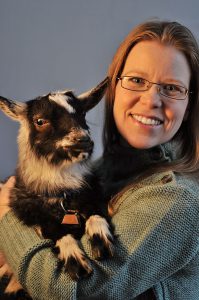 By Shea Rolnick, February 2, 2016, Knotty Goat Soapery — Goat Milk Soap
By Shea Rolnick, February 2, 2016, Knotty Goat Soapery — Goat Milk Soap
My tiny goat, Jeremy, will celebrate his third birthday at the end of this month. Two years ago, just before his first birthday, I had a photo shoot with him that led to a moment of realization for me. I realized how much I needed to farm in order to heal from post-traumatic stress disorder due to years of abuse. I realized that my path to healing must focus on animals. Two years ago, I was just starting to recognize the immense influence that my farming lifestyle has on my health. Today, I know just how vital my farm is to my recovery.
Today, I am happier than I have ever been before. I am gaining confidence. I feel healthier than I have in years. I am pushing myself to grow and learn every day. I have moments when I feel truly content. Less than a decade ago, nothing would have convinced me that I had a future in which I was happy. My health had deteriorated to an extent that left me hopeless. Today, I have a growing farm business, a new husband, and a beautiful stepdaughter.
In the two years since my photo shoot with Jeremy, I have continued to work with Maine AgrAbility. They helped me to adjust my farming operations to accommodate the limitations of my body. I no longer struggle with the routine of feeding and watering my small herd of goats. I built milking stands in two sizes to allow me to milk both standard and dwarf dairy goats. I have a video and audio monitor in the barn so that I can check on the goats from inside the house. This significantly reduces my anxiety, especially at night.
I recently designed a studio space in which I create, cure, store, and package the goat milk soap that I make. Based on recommendations from Maine AgrAbility, the space is filled with work surfaces at several heights. I can work in different areas, based on the task that I’m performing at the time. I use smaller containers to lighten loads for lifting and pouring. Anti-fatigue mats cover portions of the floor and three light sources fill the room with plenty of light to see my work.
Initially, I only sold my goat milk soap online and to shops. Anxiety from PTSD kept me on my property and secluded from people. Over the past few years, I have brought my business into public venues, something I didn’t think I would be able to do. I started with small, infrequent shows but pushed myself to do more. My goat milk soaps can now be found seasonally at local art markets, farmer’s markets, and festivals. I am a part of my community now.
Farming has been the best therapeutic tool for me. Though treatment by doctors and medications has helped my recovery, farming has healed me in ways that the doctors couldn’t. Farming has forced me to use my body every day for the past 5 years, even when depression and pain would have kept me in bed otherwise. Goat farming has filled me with joy during kidding season and contentment on summer afternoons when I sit with the goats for an hour while they chew their cud. Farming has created a way for me to become a part of my community. Anxiety used to tell me that people are threatening and scary. Those people are now my friends.
Through my work in farming, I am continuing to recover. My health is improving. I look forward to seeing how my life and this farm will grow. I have big plans for my little goat farm!
Maine AgrAbility Featured in WABI Report
WABI (Channel 5) reported on Maine AgrAbility, a USDA grant-funded state program that helps farmers with chronic health conditions and disabilities gain more control of their lives, continue to farm successfully and live independently. The program is a nonprofit collaboration of University of Maine Cooperative Extension, Goodwill Industries of Northern New England and Alpha One. The report focused on a farmer in Winterport who was helped by the program. Richard Brzozowski, project director of Maine AgrAbility and a small ruminant and poultry specialist with UMaine Extension, told WABI “You don’t look at the disability part. You think of what they can do; the ability part.”
From the Mail Bag
Thanks so much for “Oh, My Aching…“! I was sitting here with a sore shoulder and back, wishing I hadn’t been bending over to pull weeds yesterday, when I saw your article. I didn’t know there were women’s tools, and I printed out the pages of stretches too. Not only is the information a big help, but so was the laugh I had reading it!
— Joan Carney, Groaning in Harpswell
Farmer Facing Stamina and Mobility Issues
Stan started farming after a successful career as a building contractor. Today, he runs a diversified farm – raising beef and chickens, a market garden and hay. He approached AgrAbility because of the pain he was experiencing in his legs, hips and lower back, due to arthritis and a back injury from his days in contracting. He wondered what he could do to increase his stamina and improve mobility around the farm. Read more...
Living the Life of Your Dreams
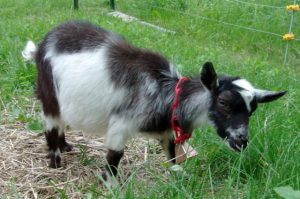 By Shea Rolnick, January 26, 2014. Knotty Goat Soapery — Goat Milk Soap
By Shea Rolnick, January 26, 2014. Knotty Goat Soapery — Goat Milk Soap
My childhood was abusive. As a child, I was constantly in fear. As an adolescent, I became depressed. As I approached adulthood, symptoms of extreme anxiety began to appear. As an adult, I learned I was living with post-traumatic stress disorder and likely had been for years.
I became less and less able. Asthma and muscle spasms prevented me from doing much. Traumatic nightmares left me exhausted when I woke up in the morning. I became so anxious in public settings, I hardly stepped foot outside my house. I had to leave my job.
Though it was upsetting to be diagnosed with PTSD, it also allowed me to understand myself and my health better. I was more ill than I realized, but once I understood what I was dealing with I could learn how to get better.
Throughout my life, I have found comfort in animals. Because of this affinity, I suspected animals would be a key to my recovery. I started with a half dozen pet chickens. They lived outside and depended on me for their care. As a result, I had to go outside twice a day, every day, no matter what. I looked forward to caring for the chickens. Being outside made me feel better.
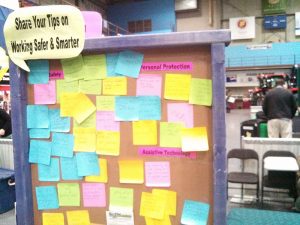 Sharing Tips
Sharing Tips
At the Maine Agricultural Trades Show in Augusta we asked farmers and gardeners to share tips on working safer and smarter. Oh, the responses we got!
“I would not still be gardening without the garden rocker I learned about last year from Maine AgrAbility display. My life changed — it’s fantastic!” — Marcia M. (Monmouth, ME)
Maine AgrAbility worked with Pietree Orchard’s “Business Monkey” to keep her successfully managing the business!
Getting Around
One of our clients was experiencing isolation due to lack of mobility. After an AgrAbility assessment, she and her husband were able to purchase a van with a low-interest mPower loan from Alpha One. Vocational Rehabilitation (VR) paid to adapt the van for wheelchair accessibility and to have part of the gravel driveway paved. Now, she can get around the farm independently and is looking forward to contributing to the farm financially, planning to sell produce, eggs, and meat at local markets and at an on-farm stand.
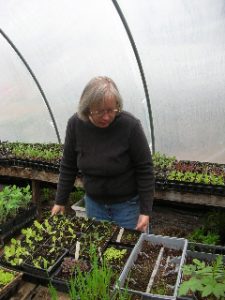 Making Dreams Come True
Making Dreams Come True
Maine AgrAbility worked with a client who was experiencing chronic pain because of arthritis in her knees. She had developed an ambitious business plan incorporating her production greenhouse with a café serving Mexican foods from locally sourced products. A vocational rehabilitation counselor worked with her to separate the agricultural production plan from the restaurant plan. Her VR counselor recommended that the greenhouse work be contracted out, and she received financial assistance to get a new commercial kitchen for her café.
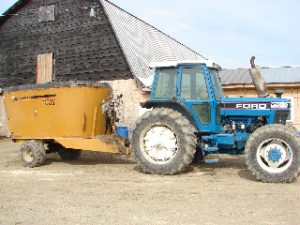
Back in the Driver’s Seat
We worked with a dairy farmer who was mauled by a bull in 1992 and who still experiences chronic pain. We conducted a farm tractor seating analysis on several of his tractors. VR funded the purchase of 5 air-cushioned tractor seats to relieve his pain from the vibration due to worn out seats. The AgrAbility report explained that each tractor had a specific use and couldn’t be interchanged, so VR funded all 5 seats.
Nationally…
Take a look at the Colorado AgrAbility resources page: AgrAbility — A Program That Works. This is a recent report from the National AgrAbility Project that demonstrates clear successes across the country. Note that as a newly funded program, Maine AgrAbility is not included in this data, but we look forward to adding our work soon!

AgrAbility is funded by the USDA NIFA program. See more in this article posted to the USDA blog: AgrAbility Helps Keep Farmers, Ranchers with Disabilities on the Job (2/5/13).

